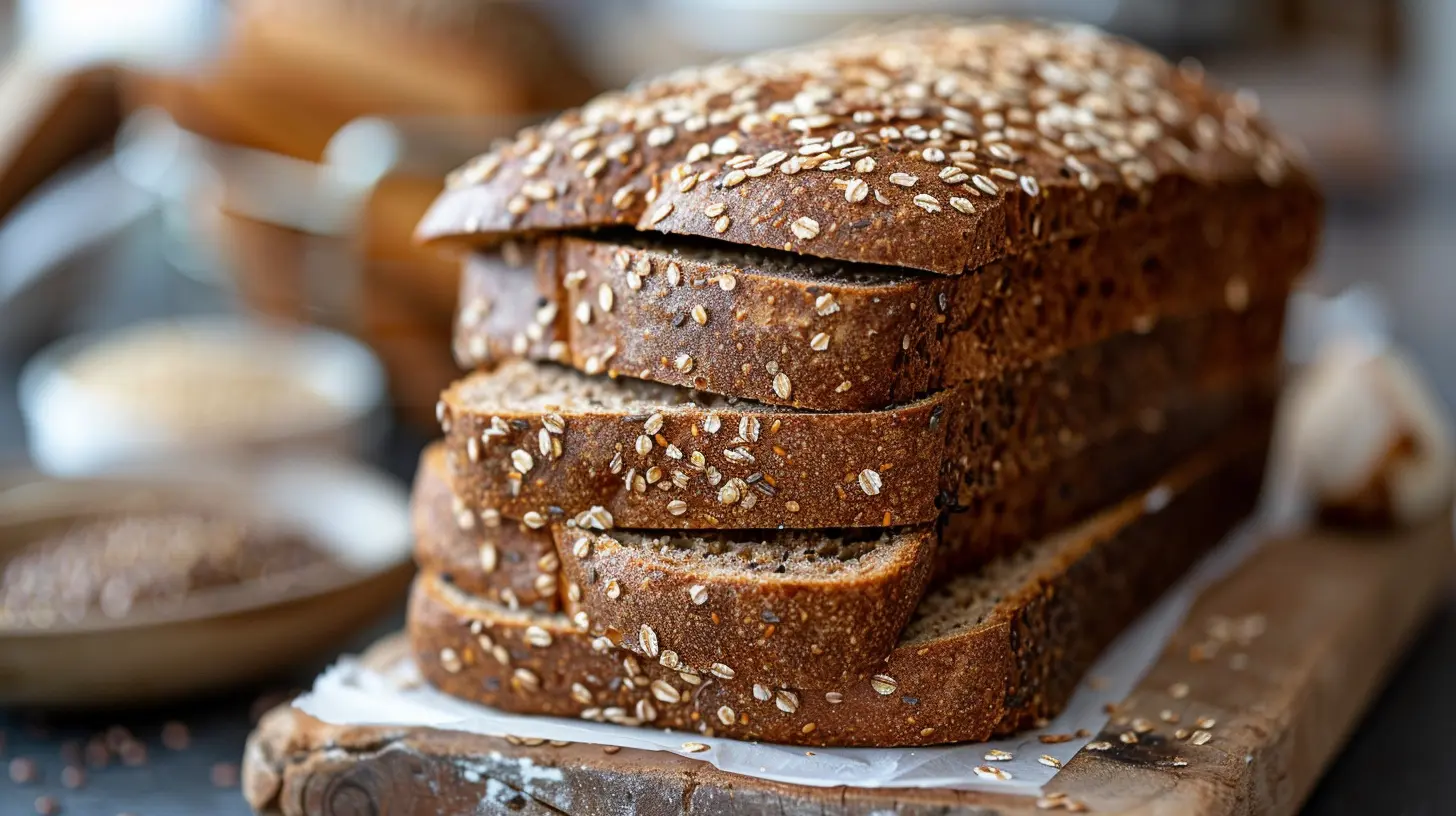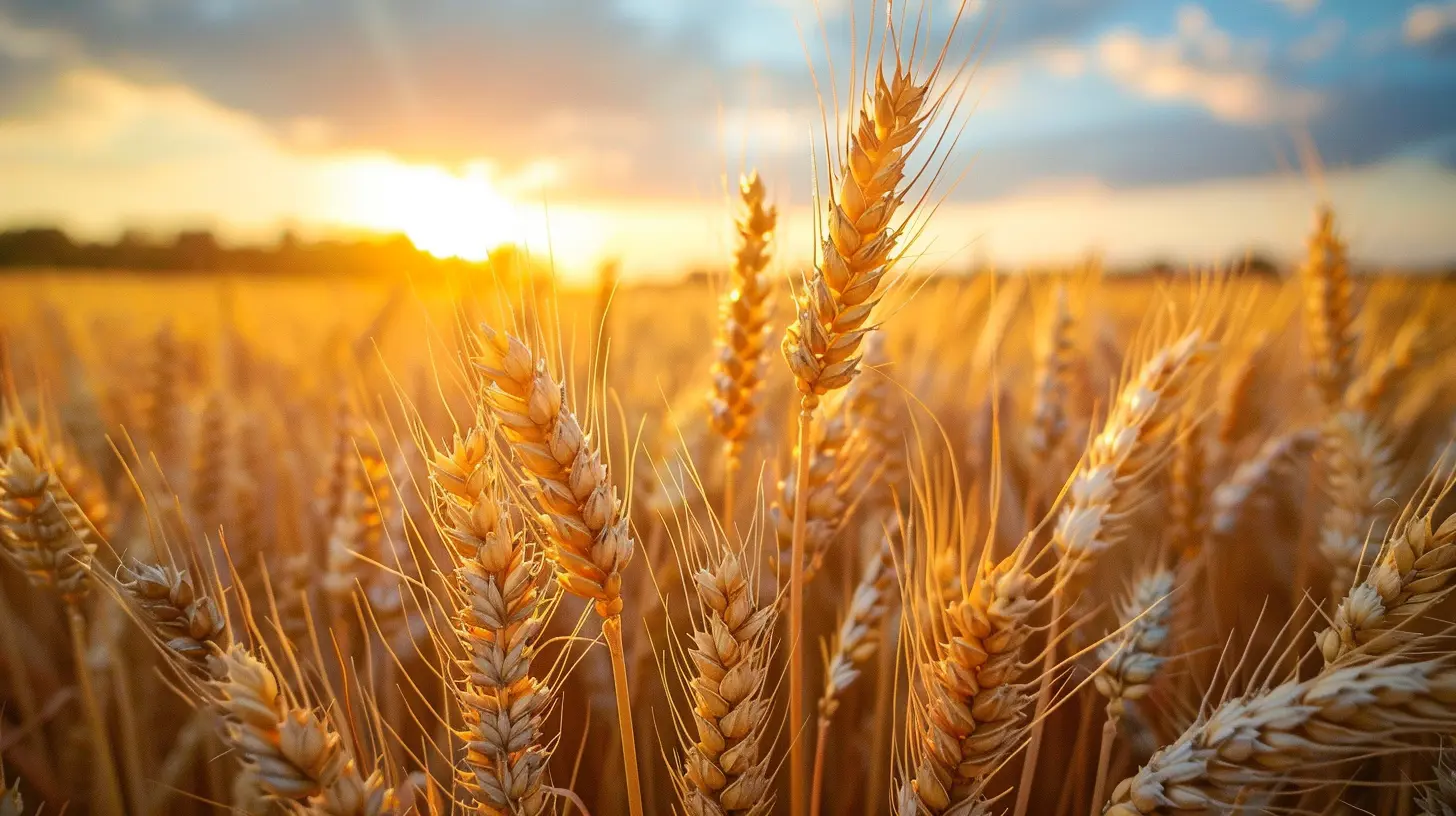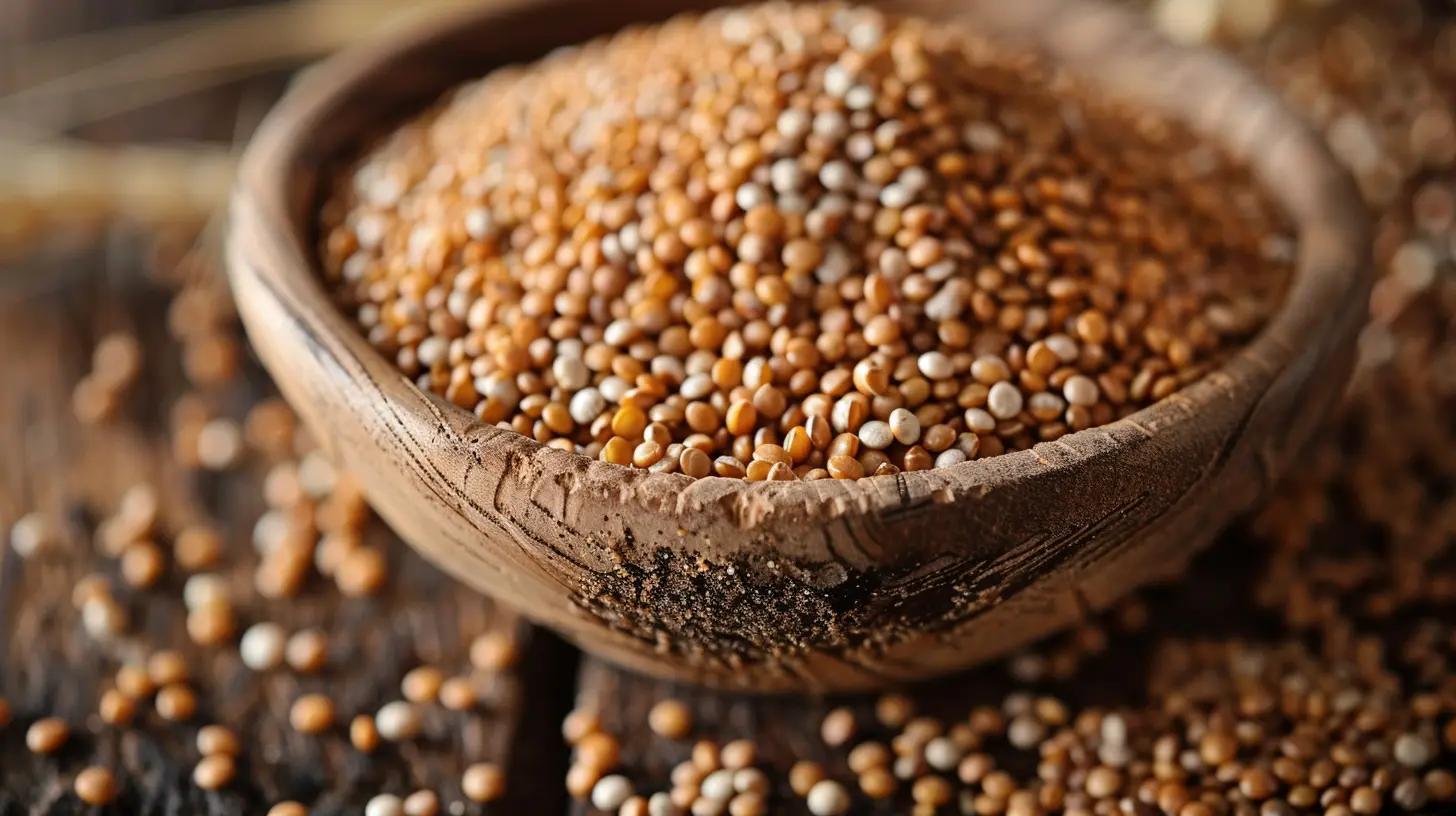Going Gluten-Free for Weight Loss: Is It Really Effective?
19 April 2025
In the world of health and nutrition, "gluten-free" has become a buzzword. You see gluten-free labels plastered across everything from bread to brownies, and many people swear by it as the key to shedding extra pounds. But is ditching gluten really a magic bullet for weight loss? Or is it just another diet trend riding the wave of misinformation?
Let's break it all down and get to the truth. 
What Exactly Is Gluten?
Before we dive into the weight loss claims, let's get clear on what gluten actually is. Gluten is a protein found in wheat, barley, and rye. It gives bread that chewy texture and helps baked goods hold their shape.For people with celiac disease—an autoimmune condition where gluten triggers severe digestive issues—cutting out gluten is mandatory. Others with gluten sensitivity may experience bloating, headaches, or fatigue after eating gluten. But what about the rest of us? Does avoiding gluten help with weight loss? 
The Connection Between Gluten and Weight Loss
Many people believe that ditching gluten leads to automatic weight loss. And while some people do lose weight on a gluten-free diet, it’s not necessarily because they’ve cut out gluten itself.Why Do Some People Lose Weight on a Gluten-Free Diet?
1. Cutting Out Processed FoodsGoing gluten-free often means eliminating many processed foods like pizzas, burgers, cookies, and cakes. This naturally reduces calorie intake, leading to weight loss.
2. Eating More Whole Foods
People who adopt a gluten-free lifestyle tend to eat more vegetables, lean proteins, fruits, and naturally gluten-free grains like quinoa and rice. This switch to healthier, whole foods can contribute to weight loss.
3. Better Digestion, Less Bloating
Some individuals feel less bloated when they stop eating gluten, which can make them look and feel slimmer—even if actual weight loss is minimal.
4. Increased Awareness of Food Choices
When going gluten-free, people often become more mindful of what they eat. This heightened awareness can lead to healthier food choices and, consequently, weight loss.
Why a Gluten-Free Diet Won't Automatically Make You Lose Weight
On the flip side, just because you’re cutting out gluten doesn’t mean you’re cutting calories. In fact, some gluten-free products have more sugar and fat than their gluten-containing counterparts to compensate for the lack of gluten.1. Gluten-Free Doesn’t Mean Low-Calorie
Many gluten-free breads, cookies, and pastas are packed with extra sugar and unhealthy fats to improve texture and taste. If you’re replacing regular foods with these highly processed alternatives, you might actually gain weight.
2. Portion Control Still Matters
Just because something is gluten-free doesn’t mean you can eat unlimited amounts of it. Overeating gluten-free snacks and baked goods can still lead to excess calorie intake.
3. Nutrient Deficiencies Can Occur
Whole wheat products contain essential nutrients like fiber, iron, and B vitamins. If you’re not carefully planning your gluten-free diet, you might lack important nutrients, which can impact metabolism and overall health. 
The Science: Does Gluten Really Affect Weight?
Several studies have examined the connection between gluten and weight gain. There's currently no scientific evidence suggesting that gluten itself causes weight gain.Instead, weight gain is more likely due to diet quality, portion sizes, and total calorie intake. The reason some people lose weight on a gluten-free diet is because they’re cutting out junk food—not because gluten is inherently fattening.
Gluten-free diets may sometimes help with reducing inflammation—but only for those who are actually sensitive to gluten. For everyone else, gluten isn’t the enemy it’s often made out to be. 
Should You Go Gluten-Free for Weight Loss?
Now, you might be wondering—should I give gluten-free a shot to shed some pounds? Well, here’s the deal.1. If You Have Celiac Disease or Gluten Sensitivity
You absolutely need to avoid gluten, and as a side effect, you might experience some weight loss due to a cleaner diet.
2. If You Just Want to Lose Weight
You don’t have to go gluten-free. Instead of focusing on removing gluten, shift your attention to eating nutrient-dense foods, controlling portions, and staying active.
3. If You Feel Better Without Gluten
Some people do feel less bloated and more energetic when they cut out gluten. If that’s the case for you, then removing gluten might be beneficial. Just make sure you’re still getting enough fiber and essential nutrients.
How to Lose Weight the Right Way (With or Without Gluten)
If your goal is to lose weight, here are some tried and true strategies that work regardless of whether you go gluten-free:1. Focus on Whole Foods
Eat more fresh vegetables, fruits, lean proteins, and healthy fats. The more real food you eat, the less you’ll crave processed junk.2. Watch Your Portions
Even healthy foods can lead to weight gain if you overeat. Be mindful of portion sizes, especially when it comes to calorie-dense foods like nuts, oils, and gluten-free snacks.3. Don’t Fall for “Gluten-Free” Marketing Tricks
Gluten-free doesn’t mean healthy. Check labels and avoid products loaded with sugar, artificial additives, and unhealthy fats.4. Stay Active
Exercise is crucial for weight management. Strength training, cardio, and daily movement help burn calories and promote overall health.5. Get Enough Fiber
If you cut out whole grains, ensure you’re getting fiber from sources like fruits, vegetables, nuts, and seeds. Fiber keeps you full and supports digestion.6. Hydrate and Sleep Well
Drinking enough water and getting quality sleep play massive roles in weight loss and overall well-being.The Bottom Line: Is Going Gluten-Free Effective for Weight Loss?
Going gluten-free can lead to weight loss, but not because gluten is the enemy. The real reason people lose weight is that they start eating healthier foods, cutting processed junk, and being more mindful about their diet.If you’re considering a gluten-free diet, do it for the right reasons—not because of diet trends or myths. The best weight-loss plan is one that’s balanced, sustainable, and suited to your body’s needs.
So, rather than jumping on the gluten-free bandwagon, focus on eating whole, nutrient-dense foods, staying active, and maintaining a healthy lifestyle. That’s the real key to successful weight loss.
all images in this post were generated using AI tools
Category:
Gluten FreeAuthor:

Angelo McGillivray
Discussion
rate this article
5 comments
Natalie Wood
Going gluten-free can lead to weight loss for some, but it's not a magic solution. Many gluten-free products are high in sugar and calories. Focus on whole foods and balanced meals instead. Consult a healthcare professional before making significant dietary changes.
May 10, 2025 at 3:14 PM

Angelo McGillivray
Thank you for your insightful comment! You're absolutely right—choosing whole foods and maintaining balanced meals are key to effective weight loss, and it's important to consult a healthcare professional before making any significant dietary changes.
Rune Kearns
Great insights, thanks for sharing!
April 23, 2025 at 4:56 PM

Angelo McGillivray
Thank you! I'm glad you found the insights helpful!
Samira Moses
Thank you for this insightful article! It’s crucial to differentiate between gluten intolerance and general weight loss. While a gluten-free diet may help some, it's important to focus on overall balanced nutrition and lifestyle changes for sustainable weight management. Great read!
April 20, 2025 at 2:39 PM

Angelo McGillivray
Thank you for your thoughtful comment! I completely agree—balanced nutrition and lifestyle changes are vital for sustainable weight management. I'm glad you found the article insightful!
Aelith Russell
Grateful for this insight; it truly helps!
April 20, 2025 at 2:48 AM

Angelo McGillivray
Thank you! I'm glad you found the insight helpful!
Reese Hubbard
Empower your journey today!
April 19, 2025 at 3:10 PM

Angelo McGillivray
Thank you! Empowering your journey is key, and making informed choices about gluten can be a vital part of that process.




